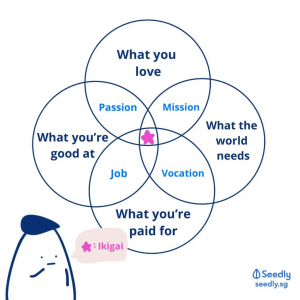
Finding your passion and living passionately.

I Intend to live life, not just exist….


 I started my career as a mainframe engineer as a resident engineer at the customer data center providing 24×7 support. Those days were of centralized computing and the mainframe was the single point of failure for the organization and hence the engineers supporting them had to be on their toes, should there be any outage. We couldn’t do without having engineers onsite, keeping spares onsite and have an escalation path to ensure system stays up as there would be many people who would have to sit idle if there was any outage. Customer service /satisfaction depended on the up-time, how knowledgeable the engineer who managed the systems was and the escalation efficiency. From customer management perspective, there was a team dedicated to serve this customer who managed day to day activities.
I started my career as a mainframe engineer as a resident engineer at the customer data center providing 24×7 support. Those days were of centralized computing and the mainframe was the single point of failure for the organization and hence the engineers supporting them had to be on their toes, should there be any outage. We couldn’t do without having engineers onsite, keeping spares onsite and have an escalation path to ensure system stays up as there would be many people who would have to sit idle if there was any outage. Customer service /satisfaction depended on the up-time, how knowledgeable the engineer who managed the systems was and the escalation efficiency. From customer management perspective, there was a team dedicated to serve this customer who managed day to day activities.
We then moved towards distributed computing where the mainframes got replaced by client/server architecture (LAN, minis / mid-range systems). Delivery model also transformed to match the distributed nature of the support. Engineers could sit in office and visit multiple customers in a single day. Customer service / satisfaction depended on transactions (service requests) , rather than holistic view of the complete service delivery since the impact of the issues wasn’t significant and there would only be partial outage as seen holistically.
With the cloud computing, we are again moving back to the consolidated (converged) infrastructure where data centers are being consolidated into one big data center which houses all the infrastructure to set up the cloud. As we take huge strides towards this model, we are moving back to the good old centralized computing days but with a difference. From customer management perspective, we are again going towards the old model where we have a dedicated team that will need to take care of the customer.
The difference in this new model which we are heading towards is that there are more challenges due to the changes in requirements and onus is again going to find people who would have both technical and soft skills to be able to manage the customer pressure during the times of outages. The support personnel will need to acquire skills from multiple technical domains to understand the big picture of the cloud solution.
Note: While cloud computing is the buzz word, I agree that there will always be a legacy of client/server computing left, as we still have mid-range systems and mainframes around.
 A lot has been said and read on good customer service and the impact it has on profitability and customer loyalty. We come across at least a few occasions everyday in our day to day life where we have to interact with a customer service person. How does one experience differ from the other ? Is it the service that catches your attention or is it the person who serves you that leaves a mark on you , or is it both ?
A lot has been said and read on good customer service and the impact it has on profitability and customer loyalty. We come across at least a few occasions everyday in our day to day life where we have to interact with a customer service person. How does one experience differ from the other ? Is it the service that catches your attention or is it the person who serves you that leaves a mark on you , or is it both ?
I have been in the customer service business for 24+ years and have been directly and currently indirectly providing customer service. Coming out fresh from the engineering college, my first job was a memorable one, that not only exposed me to harsh realities of life but also gave me a reality check that I should now forget my good old college days. By direct, I mean that earlier I was a customer facing engineer and in my later role, I was providing remote support to our global customers.
I joined a third party maintenance company who was providing on site support for the mainframe customers. The mainframe computers those days were primarily from IBM, Unisys, DEC and were gigantic in size with removable disk pack drives, vacuum column tape drives, punch card machines and line printers. The customer I was asked to go was one of those with Burroughs mainframe and in the business of power generation and supply. The center were I was placed was the 24×7 data center and I was an on the job trainee with a senior engineer placed on the site. The first few days were just reading the manuals and watching my senior on how to troubleshoot problems.
I remember that it was hardly a week or so and as usual being very enthusiastic, I reached the customer place on or before my usual time (9 am) and read the manuals and I was interrupted by an operator asking me to check a printer who had stopped printing. My heart started to pound as it was my very first call that I was supposed to handle alone. In front of the printer, I was just checking a few basic things and suddenly a hand pulled me away from the printer and asked me to get out of the computer room. Shocked and terrified, I looked at the person doing that and it was the data center manager. He asked his operators not to allow a “fresher” to touch his expensive equipment and asked me to stay away from the data center till the senior engineer comes. Later on, the senior engineer came and took control of the situation and explained to the data center manager that he would mentor and coach me towards servicing the equipment and that he would take utmost care that I wouldn’t touch the equipment until he gives a go.
This episode left me thinking whether I have taken a right decision by taking a career like this. I couldn’t sleep the whole night but finally I decided that I would give my best shot at it and let my work do the talking. From that day, I slogged day and night to learn things and within a year, I could manage the mainframe computer on my own. It was then that the senior engineer left the company and I was given the independent charge of this account. The data center manager was totally at my mercy as we didn’t have any other “expert” who could handle this installation which was running on old and obsolete mainframe. So much so that he fought with my manager to give me promotion or else he would go for another vendor to do support as he relies on me for providing support.
The tables had turned and the person who literally threw me out of his office was fighting for me and was wanting me to continue to serve his data center.
Two things I took as a learning from this experience and my first job.
Well, there are three main ingredients which form the X-factor. These qualities also form the basic building blocks for anyone in customer service.
We shall discuss them individually.
1. Empathy.
The book defines empathy as “a capability to share your feelings and understand another’s emotion” (the another person in our context is the customer we want to service). In my example above, my first reaction to the customers hostility was to retaliate but when I put myself into his shoes that night, I realized that he was probably right and at that time, I had to empathize with him to realize where he was coming from. This is customer service is an acquired art and will come through experience. Only that one should be patient and should have a desire to help.
2. Responsiveness.
What does the customer want ?
To answer a few of these questions, here is a list of some minimum things that a customer would expect and various surveys that were done also confirm this.
One word which would cover all the 3 points above is “Responsiveness”. This is the number one quality and a must for all those who are already in customer services or are aspiring to be one.
Some questions to ask whether you have this in you.
If you have this in you or are committed to build this quality this would go a big way in coming out winner. If you lack this quality, then again it is an acquired art and should try to build this capability and see how it can create wonders for you.
3. Attitude
Other thing that is important and makes one a better customer customer service person is “Attitude”. Having the right or wrong attitude in all the career options may need to have different qualities. In relation to customer service, ask these questions to see if you have this quality.
A note about “technical competency” which is thought by most people as the only thing needed to serve the customers. I feel that and as I mentioned earlier, although it is needed, I consider that this is something everyone should have at a reasonable level. However, the above qualities will ultimately differentiate a good customer service versus an mediocre service. In reality, the customer hardly cares whether you are too senior, too technical and have more in depth knowledge. All he wants someone to help him to solve his problem or get him to the right person who can do so.
I have tried this myself and have tried to influence my colleagues, managers and business partners and am sure they would have been benefited. In my current role as a manager, I have tried to mentor my team with these qualities. Once a person listens to the customer with empathy, is responsive , has the right attitude and is technically competent, he/she can start seeing the results in form of customer appreciations via the feedback programs which give a great feeling of “satisfaction” and motivates him/her to do even more.
Now come to the last thing I want to discuss and something for the people who already have the above qualities and are practicing the same and willing to take it to the next step i.e. the customer wanting to be served by you again and again. Here are some suggestions that will help you go beyond what is needed but will add value in serving the customers.